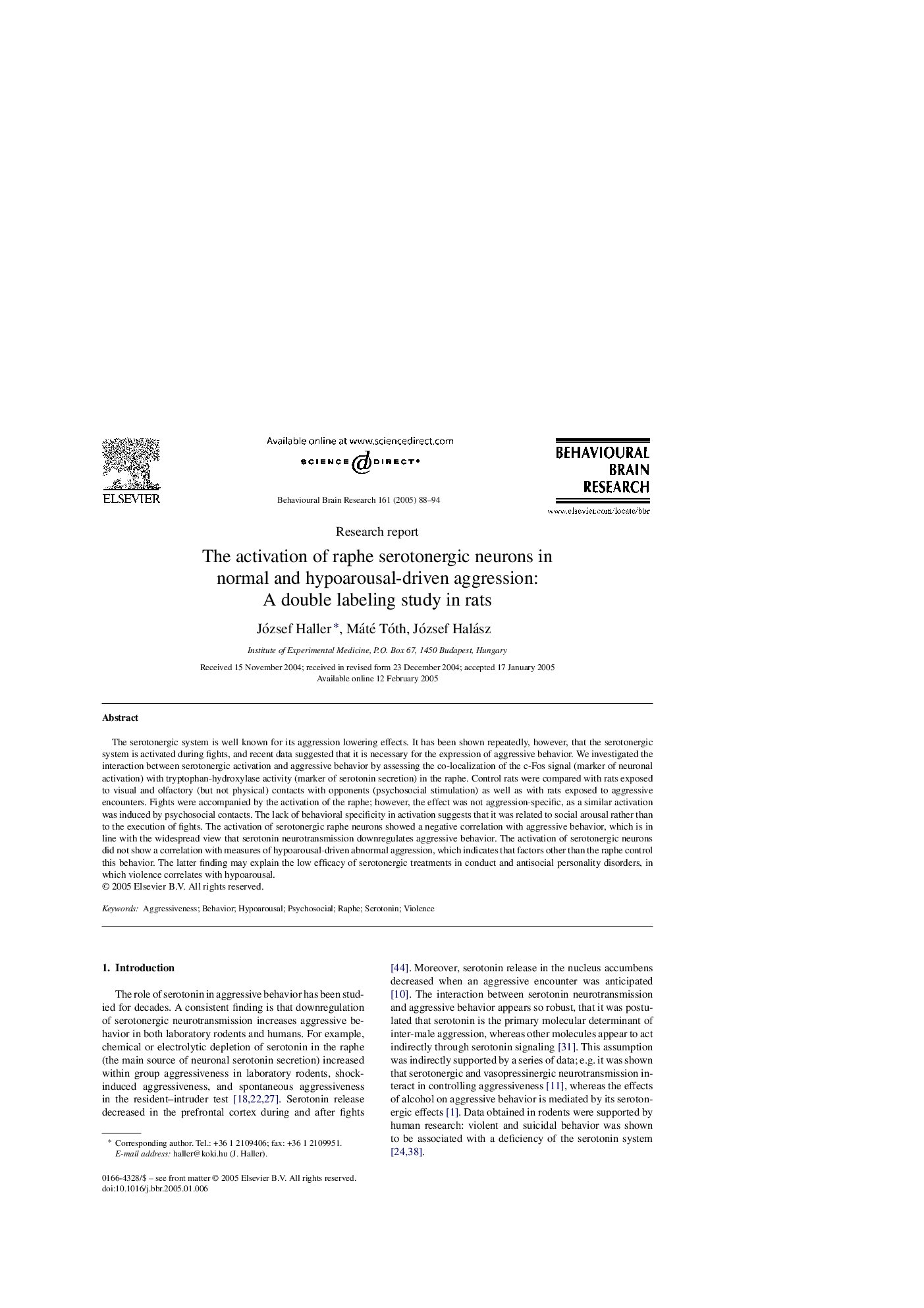| Article ID | Journal | Published Year | Pages | File Type |
|---|---|---|---|---|
| 9406356 | Behavioural Brain Research | 2005 | 7 Pages |
Abstract
The serotonergic system is well known for its aggression lowering effects. It has been shown repeatedly, however, that the serotonergic system is activated during fights, and recent data suggested that it is necessary for the expression of aggressive behavior. We investigated the interaction between serotonergic activation and aggressive behavior by assessing the co-localization of the c-Fos signal (marker of neuronal activation) with tryptophan-hydroxylase activity (marker of serotonin secretion) in the raphe. Control rats were compared with rats exposed to visual and olfactory (but not physical) contacts with opponents (psychosocial stimulation) as well as with rats exposed to aggressive encounters. Fights were accompanied by the activation of the raphe; however, the effect was not aggression-specific, as a similar activation was induced by psychosocial contacts. The lack of behavioral specificity in activation suggests that it was related to social arousal rather than to the execution of fights. The activation of serotonergic raphe neurons showed a negative correlation with aggressive behavior, which is in line with the widespread view that serotonin neurotransmission downregulates aggressive behavior. The activation of serotonergic neurons did not show a correlation with measures of hypoarousal-driven abnormal aggression, which indicates that factors other than the raphe control this behavior. The latter finding may explain the low efficacy of serotonergic treatments in conduct and antisocial personality disorders, in which violence correlates with hypoarousal.
Related Topics
Life Sciences
Neuroscience
Behavioral Neuroscience
Authors
József Haller, Máté Tóth, József Halász,
